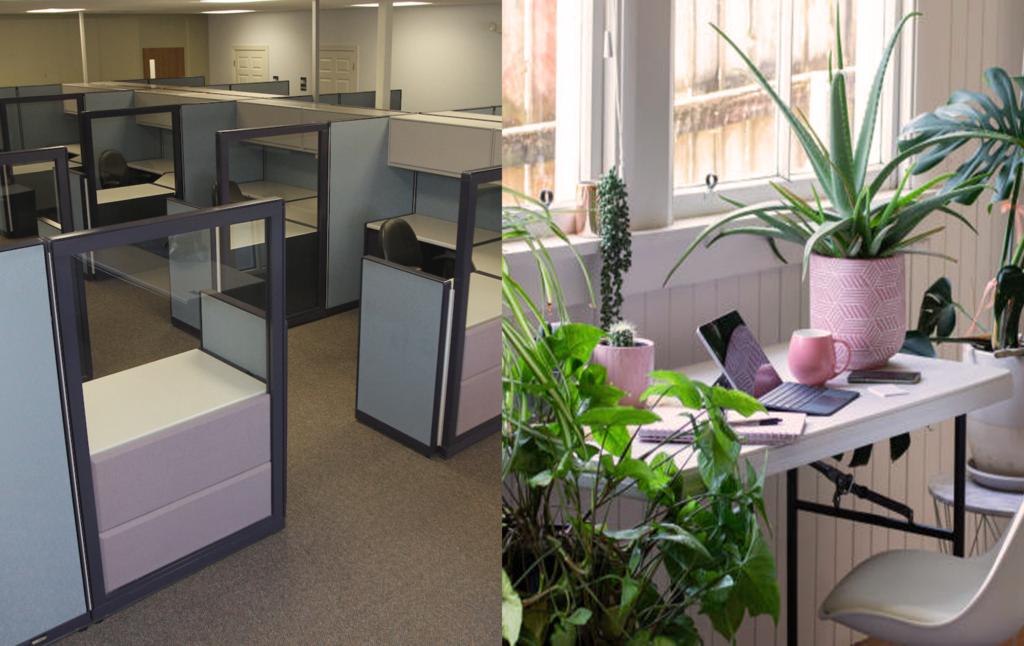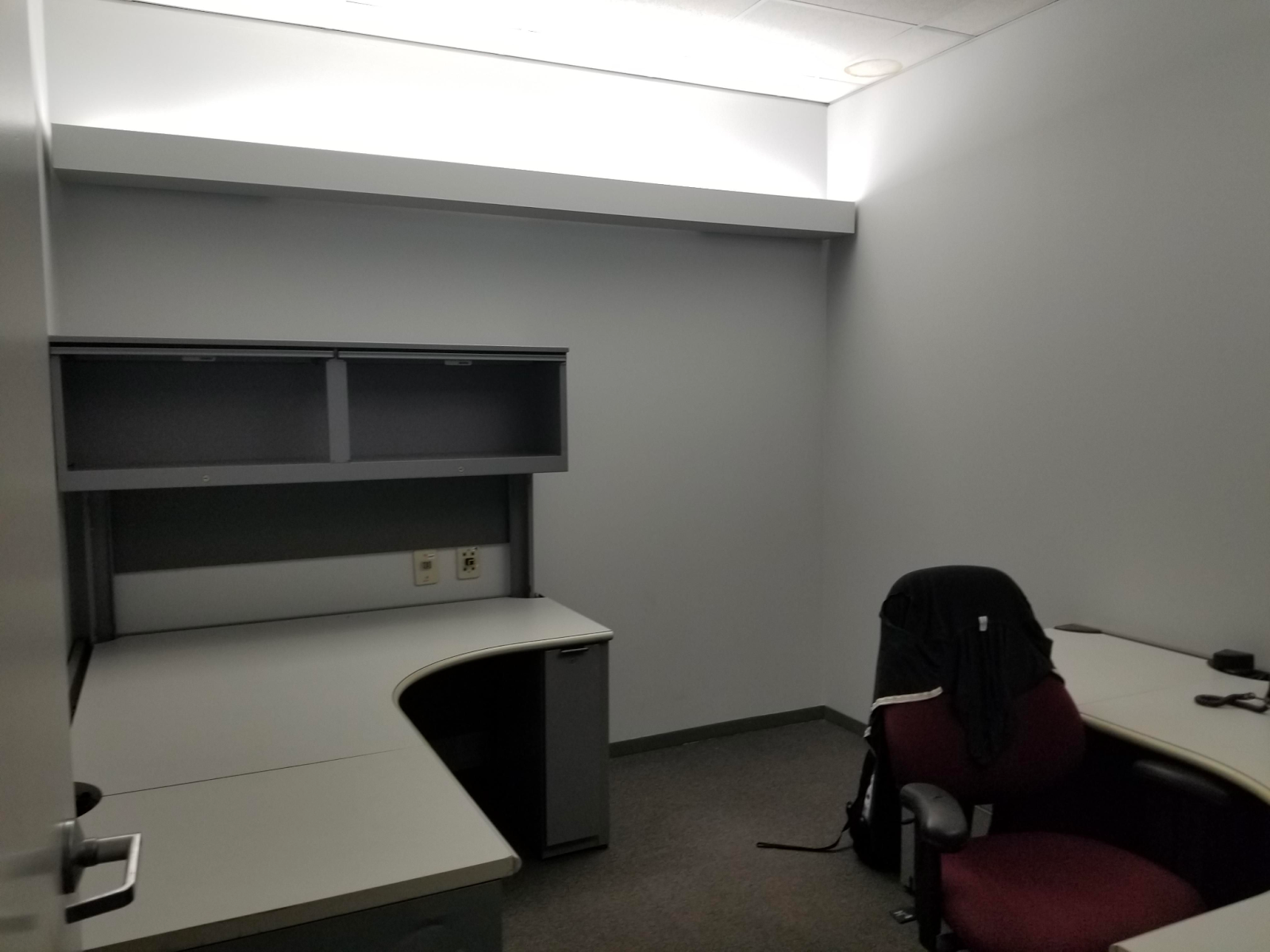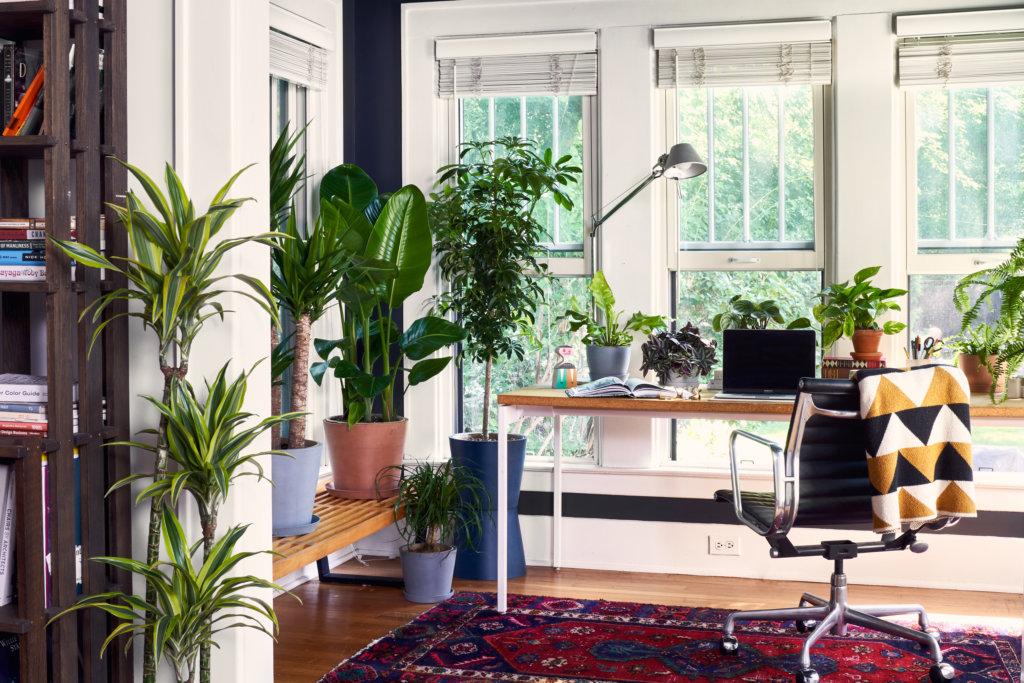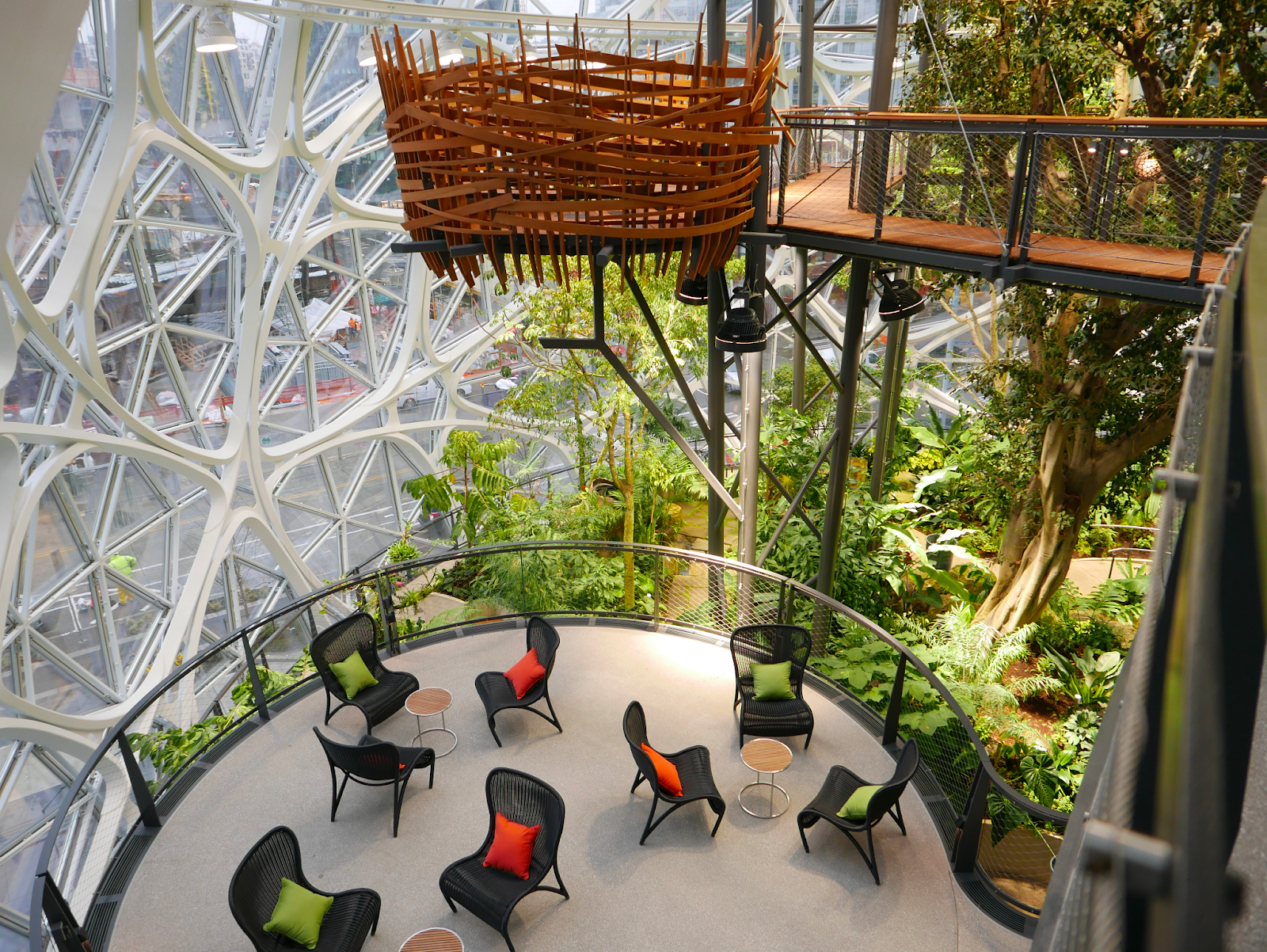
The Right to a Window Should Be as Fundamental as Freedom of Speech
Many workers have their health damaged by lack of access to sunlight and plants. Windows shouldn’t be seen as a perk or luxury. They are a basic necessity that everyone deserves.
It’s an absolutely gorgeous day today here in New Orleans, and I hate that I have to be indoors. But I’m one of the lucky ones. I have a big window in my office. It looks out on a pretty dismal alleyway. I’d prefer it to look out on an urban forest. But it’s a window, and the sun streams through it. I can even open it, though I choose not to because there’s a big ol’ wasp nest right outside and they fly into my office the first chance they get.
I can’t imagine how bleak my working life would be without my window. Being a writer and editor requires spending a lot of time cooped up alone in a quiet room. (At least if you’re like me, and can’t work in noisy coffee shops.) If I had to work in an office without a window, I’d barely see the sunshine. I think I would get very depressed very fast.
But plenty of people do spend all day in windowless spaces. I stopped by the CVS pharmacy this morning, and I noticed that the pharmacy in the back of the store has zero natural light. I hadn’t thought before about the fact that the pharmacist, who is there all day, doesn’t get to enjoy any of a gorgeous day like today. I consider that cruelty.

I’m not just an unusually avid proponent of office sunlight. According to a survey reported on in the Harvard Business Review, “access to natural light and views of the outdoors” are the number one attribute that people seek in a workspace. They want it more than on-site cafeterias and fitness centers. What’s more, despite craving light, people don’t actually get it. The same survey found that “over a third of employees feel that they don’t get enough natural light in their workspace” which tended to make them feel tired and “gloomy.” There is plenty of research showing that there are negative health effects to not having enough sunlight in the office. For instance, a study in the Journal of Clinical Sleep Medicine found that “workers in windowless environments reported poorer scores than their counterparts on two SF-36 dimensions—role limitation due to physical problems and vitality—as well as poorer overall sleep quality.”
You don’t need the empirical research in order to understand this. Plants and sunlight make us happy. Not everyone, I’m sure—people vary wildly, and I’m sure there are those who like to work in dismal cocoons. But people’s preferences will tend to be very similar if you ask them whether they’d rather work here:

Or here:

Interestingly, Amazon, understanding the clear benefits of sunlight and plants for the well-being of workers, built a “stunning urban oasis” in Seattle called the Spheres to serve as an employee lounge for its white-collar workers:

Similarly, Amazon’s planned headquarters in Virginia is a giant glass helix with a spiral-shaped garden that goes from the top to the bottom of the building.
Of course, Amazon is evil, and so most of the people who work for the company will never get the “perk” of sunshine and plant life. (It may also be offering these benefits to compensate for its brutal extraction of every last ounce of labor from its white-collar workers.) People who work in Amazon warehouses don’t get a giant greenhouse with a forest. Instead, they have to content themselves with an “AmaZen” mindfulness booth.
But doesn’t every person deserve access to sunshine and greenery as a basic right? If it harms your health not to have these things, then companies that don’t provide them should be treated the way companies that unnecessarily endanger workers’ safety are treated. The Occupational Health and Safety Administration rightly requires that workers who toil in the sun must be given access to shade. Why don’t they require that workers who work indoors be given access to sunshine and nature? If these things are basic to our health, and people who don’t have them are hurt mentally, then they’re not luxuries or perks, they’re necessities.

The problem is that a for-profit corporation is not going to take measures that cost money unless they’re forced to by an external authority. It would require thought, care, and money to build every new CVS with windows in the pharmacy and a little garden outside. Why would they ever do it unless they’re made to do it?
I don’t know why it should sound wild or utopian or unrealistic to say that windows are a basic right that every worker deserves. You have rights (even if they’re under-enforced) to safety in your workplace. Why don’t you have a right to necessities essential for your mental well-being?
Unfortunately, in this messed-up world of ours, rather than giving people more access to the outside world, we may give them less. The mayor of New York City just suggested that to ease the city’s housing crisis, it might be necessary to permit windowless bedrooms in apartments (currently banned under a tenement regulation dating back to the 19th century). After all, he said, “when you sleep it should be dark.” (Indeed, but when you wake up it should be light.) Centrist blogger Matthew Yglesias has written that “to save downtowns, we need to embrace windowless bedrooms,” though he gives zero evidence that this is actually necessary to provide more housing. His argument appears to be that if they’re legalized, and there is “demand” for them, this will prove that people “want” them. The analysis will not persuade leftists, who understand that market choices are not reflections of what people ideally “want,” because often they take the best thing they can afford even if it’s terrible. I have no doubt that if you legalize windowless bedrooms in New York City, plenty of people will move into them, just as they moved into tenement houses in the 1800s. But the fact that poor people in search of housing don’t have the ability to demand a window as a nonnegotiable condition is precisely why the government has to establish basic standards. (In San Francisco, I bet you’d find people willing to rent an apartment where you had to poop in a bucket if the rent was $700 a month. But while Yglesias might say that this shows consumers are demanding poop-buckets, and the government is unfairly preventing the market from providing them, toilets should be nonnegotiable.)
I think the right to sunlight and access to plant life is fundamental. It should be written into the damn Constitution. You are not a part in a machine. You are a human being who should get to watch birds out your window. (Assuming we don’t annihilate all of the birds.) There may be other labor issues that rightly get higher priority—it’s understandable that when people aren’t even paid enough to afford their rent, they’re less concerned with whether they get sunlight or not. But we need to raise our expectations and demands. Companies that don’t give workers windows are engaged in mistreatment and abuse. The health effects are clear. The right should be absolute.




